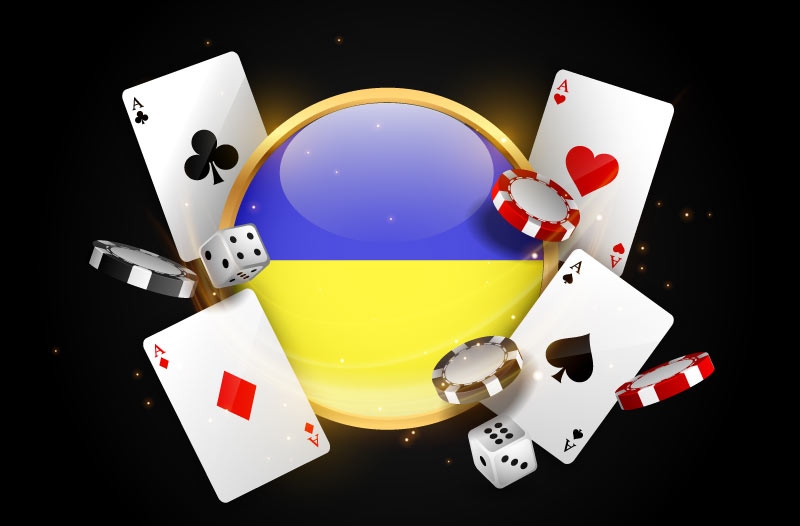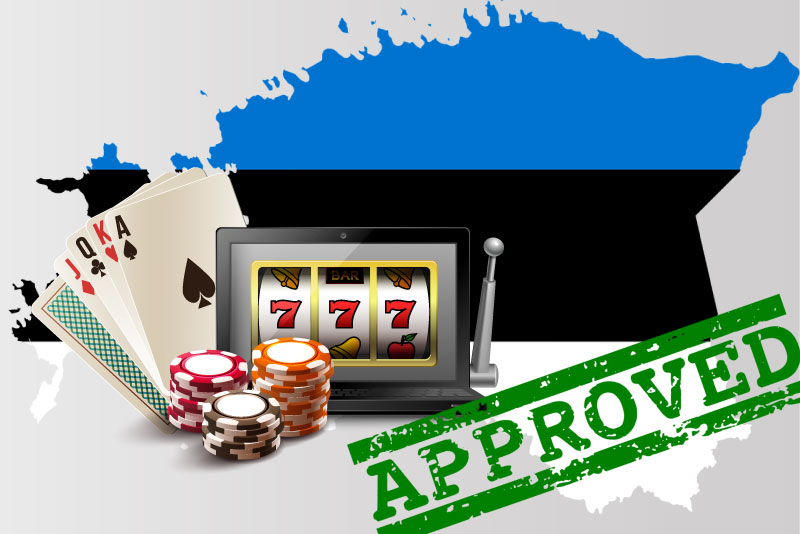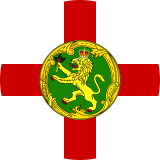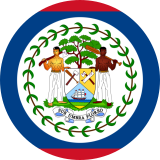Eastern European & CIS Gambling Scene in 2025: Where the Action is the Hottest
The casino and sports betting in the region has always moved fast but has had occasional regulatory nuances. Some countries are open to the adaptation of old laws to invite investors with modern licensing conditions. Others still adhere to outdated restrictions, extra-large taxes, and closed doors.
If you plan to set up a legal gambling entity in this part of the world, it is critical to understand where opportunity meets reality. Smart Money is here to help you find high-growth markets and avoid legislative landmines. We are eager to suggest where to invest in 2025 and how to tread lightly.

If you need a sensible way to navigate these landscapes, get in touch with our client support. Buy all the necessary software for your platforms or inquire about from-scratch solutions like turnkey or White Label projects to start from the beginning with proficient aid.
A High-Risk, High-Reward Betting Zone
Eastern Europe has never been the most accessible destination for operators. The region is notorious for sudden regulatory shifts, different interpretations of law, and a general “expect the unexpected” nature. One country might be rolling out a new licensing system, while the other decides to ban online sportsbooks overnight.
The definition of “Eastern Europe” is famously fluid. Some maps keep it narrow, while others throw in the Baltics and even bits of the Caucasus. Despite the chaos, plenty of operators have found real success here. Those with a sharp eye and a flexible model can still thrive.
Ukraine’s Dynamic Landscape

The gambling sector in the country has undergone some serious shake-ups lately. The jurisdiction is full of potential for betting and casino businesses, but it also has its fair share of challenges. If you perceive Ukraine as a potential destination for gambling operations, you will find lucrative opportunities.
Overview of the current landscape:
Regulatory Overhaul and New Oversight Body
After much noise about corruption, the government shut down the old regulator (KRAIL) and replaced it with a fresh one, PlayCity. This new body is supposed to handle digital licensing and make the whole process more transparent and operator-friendly.
Reliable Tax Revenue Growth
Despite the turbulence, money is present in the sector. Gambling companies poured $130 million into Ukraine’s budget just in Q1 of 2025, up 20% from last year.
Revised Taxation Framework
That temporary 2% flat deduction is gone. Operators are now back to paying 18% corporate tax and GGR fees that range from 10% to 30%. The final amount depends on what you are running (sports betting, slots, poker, etc.). It is a bit of a heavier financial burden, but the new rules aim to stabilise the market long-term.
Licensing Requirements and Costs
To operate here, you need to be a registered Ukrainian company with at least $720,000 in capital. Online casino licences will cost you around $1 million, while a fancy land-based hall in Kyiv could set you back up to $10 million.
Enhanced Advertising Regulations
New ad laws prohibit patriotic slogans, war-themed promos, and celebrity faces selling slots. This is a clear sign that the government wants to keep things clean and avoid encouraging gambling excess, especially during wartime.
Social Responsibility and Contributions
Operators in Ukraine must step up with real communal improvement. Humanitarian funding programs, veteran support, and donations to local causes are frequent. It is not just about ticking boxes for entrepreneurs. It is about showing that the sector can be part of the solution, not the problem.
Ukraine’s gambling industry in 2025 presents a complex yet promising environment. Regulatory reforms, increased fiscal contributions, and a focus on social responsibility offer potential for growth. However, operators must navigate stringent licensing requirements and adhere to enhanced regulatory standards.
Moldova’s Restriction and Bright Future
The country’s gambling environment is partly state-run. While the National Lottery of Moldova still tightly controls most of the sector, there are signs that the country is testing the waters of liberalisation. As operators look for up-and-coming European markets, this small but evolving space might just be worth the watchlist.
Overview of the current gambling niche condition:
- State monopoly with selective liberalisation. Since 2017, Moldova has kept most online betting, lotteries, and digital games under the exclusive control of the National Lottery. That said, land-based slot halls have stayed open for private business, as long as you are ready to play by the rules. The state is still under control, but changes seem to be inevitable.
- Evolving advertising regulations. In late 2024, the government took the first step toward easing promotional bans. A new bill allows lottery and sports betting ads during the late-night window (10:00 PM to 7:00 AM). All ads have to include bold warnings about the risks of gambling, and those disclaimers have to take up at least 20% of the message.
- Licensing and operational requirements. If you want in, be prepared for a sturdy application process. You will need full certification, background checks on your leadership, proper KYC protocols, and integration with the government’s Unified Betting and Player Centre. This is no plug-and-play market, as the jurisdiction demands structure and compliance from the start.
- Taxation framework. Operators are charged a 4% turnover deduction, which keeps things simple compared to jurisdictions with layered GGR fees. On the player side, winnings are tax-free, which is a nice hook to attract and retain users without the fear of extra expenditures.
- Gambling obsession aid. As the digital side of the sector grows, so does concern around addiction. Around 65% of casino site users are between 18 and 30, and there is increasing pressure on the government to do more. We are talking calls for support centres, school education programs, and tighter self-exclusion options.
Moldova might not present the best opportunities for private operators just yet, but it is definitely edging toward a more balanced system. If you are prepared to deal with the paperwork and take the extended view, this could be a sleeper market with long-term value.
Estonia’s Big iGaming Energy

This Baltic country might not be the biggest jurisdiction on the map, but thanks to the 2008 Gambling Act, it is now one of the most clear-cut and business-friendly ecosystems in the neighbourhood. If you are looking for a place in Eastern Europe where the rules are written down, the fees are upfront, and the red tape is minimal, this is definitely one to keep an eye on.
Eesti Loto holds onto the monopoly for virtual lotteries. However, if you are looking to establish an online casino or sportsbook, the door is wide open. There is no cap on how many licences can be issued. Once you receive it, you are eligible for up to five years. The price for the entry fluctuates at $35,000, and the application reviews are set at $3,500.
Casinos need to show financial capabilities with a minimum capital of $1.2 million, while sportsbook operators can start with a much more manageable $150,000. Taxes are refreshingly simple, at just 5% of net revenue.
Estonia’s market has been climbing steadily. The country’s industry inflow fluctuates between $67 million and $88 million annually. The combination of transparent regulations, low entry barriers, and a digital-savvy population makes Estonia a smart pick for forward-thinking investors.
Latvia’s Regulated, Reliable, and Growing Sector
The country has quietly built one of the more stable gambling markets in the Eastern European region. iGaming here is fully legal and open to private investors as long as they steer clear of lotteries, which are still locked down under the control of Latvijas Loto. The framework comes from the 2005 law, which has been updated multiple times, with the latest tweaks in 2021.
Entrepreneurs who are eager to get into the market will deal with the Lotteries and Gambling Supervisory Inspection of Latvia (IAUI). Licences are available for digital and offline casinos, as well as sports betting. There is no limit on how many permits can be issued. On top of that, these licences do not expire. They just need to be renewed once a year, so there is no ticking clock on your operations.
That said, the price of admission is no small change. A full permit for online and land-based gambling will be at $480,000, while digital-only businesses will have to pay $225,000. The $42,000 annual renewal is imposed annually and underlines that the market is for serious contenders only. The 10% GGR tax is predictable and fair, and makes it much easier to plan around than more convoluted models seen elsewhere.
A few other things to know:
- solid growth pre-pandemic, with GGR at $344 million in 2019;
- tightening gambling regulations on physical venues only;
- stable online sphere with enough room to breathe for digital-first brands.
Latvia is not the cheapest place to launch, but it does offer stability, transparency, and a solid user base.
Lithuania’s Orientation on Brick-and-Mortar Business
The jurisdiction might not be the first country that comes to mind when thinking about iGaming. However, the surge in online betting is well-supported by the numbers. Back in 2019, the market saw a 44.5% spike in digital gambling activity, which helped push the country’s overall GGR up by 13% to $125 million. Since then, the Lithuanian gambling space has become one of the most closely watched in the region.
The whole system is built on the 2001 Gaming Law and overseen by the Control Authority. The regulator keeps a close eye on compliance, especially when it comes to newer trends like virtual events and remote live dealer setups.
At the same time, you cannot just set up an online casino in Lithuania from scratch. To get a licence for digital activity, investors need to be already active in the country’s ground sector. That means ownership of an entire hall or at least ten slot rooms, or a network of betting shops.
There is no cap on how many licences can be handed out. The permits themselves are unlimited in duration. At the same time, it is critical to be ready to invest. For a ground establishment with the minimum setup (30 slots and 3 tables), the dual licence costs around $290,000. On top of that, there is an $81,000 security guarantee and a capital requirement of over $1 million. These numbers indicate that Lithuania wants only committed operators in the niche. The GGR tax is 13%, which is pretty standard for the region.
Things might shift soon, though. There has been talk in the Lithuanian parliament about online-only licences, possibly priced at $550,000 each. If that happens, it could open the doors for digital-first investors. There has not been a final decision yet, but if that flat-fee model gets the green light, it could change the industry entirely.
Lithuania’s gambling arena is growing, but it still expects operators to show up in person before their online appearance. If your brand is ready to meet that challenge or wants help staying ahead of future legal changes, a thorough licensing process awaits you.
The Main Things about the Eastern European and CIS Gambling Environment
The entertainment landscape in the post-Soviet ecosystem is anything but boring. Some countries have embraced liberalisation, and others have clung to state monopolies or legacy systems. Operators have to tread carefully, but the rewards are always worth it.
What to consider about the current climate:
- Ukraine and Moldova are transforming fast, with room for growth, but only for those who want to keep up with sudden regulatory shifts.
- Estonia, Latvia, and Lithuania each have structured systems and solid tech adoption, but entry costs and requirements vary widely.
- Tax regimes are mostly reasonable, as flat GGR percentages make it easier to forecast costs.
- Online-only licences are still rare, but countries like Lithuania are considering opening that door, which could reshape the regional scene.
- Advertising control and social responsibility are the priority since many governments tighten rules to combat addiction and protect minors.
- Land-based infrastructure still matters, especially if you want access to online licences in places like Lithuania or Moldova.
Eastern Europe and the CIS region may not offer one-size-fits-all solutions, but they do present serious potential for brands that try their hardest.
If you want to make the right call in a high-stakes environment, partner with Smart Money. Buy all the necessary software for your projects, or get in touch with our client support for information on turnkey and White Label build-up from scratch.
Check the information used to contact us carefully. It is necessary for your safety.
Fraudsters can use contacts that look like ours to scam customers. Therefore, we ask you to enter only the addresses that are indicated on our official website.
Be careful! Our team is not responsible for the activities of persons using similar contact details.


 Alderney
Alderney  Anjouan
Anjouan  Australia
Australia  Austria
Austria  Belgium
Belgium  Belize
Belize  Costa Rica
Costa Rica  Curacao
Curacao  Dominican Republic
Dominican Republic  Estonia
Estonia  Georgia
Georgia  Gibraltar
Gibraltar  Isle of Man
Isle of Man  Italy
Italy  Kahnawake
Kahnawake  Malta
Malta  Ukraine
Ukraine 











